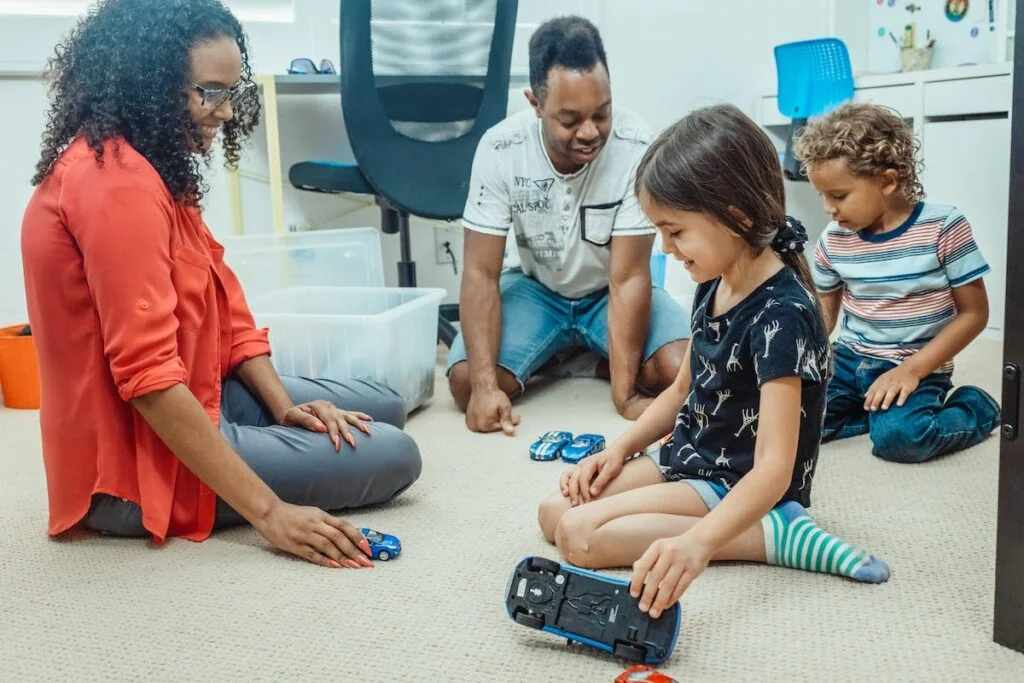Foster parenting is a meaningful and gratifying experience that has the potential to improve the lives of underprivileged children. As a foster parent, you can provide a safe and nurturing environment for a child who has experienced trauma or instability in their lives.
It is an opportunity to make a difference by providing a loving home for a kid who may not have had one before. However, being a foster parent may be a difficult and overwhelming experience, particularly for those who are new to the process.
The knowledge and resources provided in this beginner’s guide are intended to help you get started as a foster parent and offer a caring and nurturing environment for a child in need. You have the power to positively impact a child’s life and provide them with the opportunity to flourish if you have the appropriate information and guidance.
Preparing Your House And Family To Promote Safety, Space, And Communication
Before welcoming a foster child into your home, it’s essential to ensure that your living space is safe and secure. This involves evaluating potential hazards, installing safety measures, and childproofing your home.
Establishing Emotional Security
Creating a nurturing emotional environment is crucial for foster children. Open communication, setting boundaries, and involving your family in discussions about fostering are key to providing emotional security.
Creating Physical and Emotional Space
Designating a private space for the foster child and making adjustments to your family’s routines are essential aspects of preparing your home. This ensures that both physical and emotional needs are met for the foster child’s well-being.
Incorporating Foster Care into Daily Life
Adapting your daily routines and schedules to accommodate the needs of the foster child is vital. Involving them in household activities and responsibilities helps integrate them into the family dynamic.
Educating Yourself and Your Family
Understanding the foster care system and the unique needs of foster children is essential. Seek out workshops, training sessions, and advice from experienced foster parents to better prepare yourself and your family for fostering.
Managing The Emotional Components Of Foster Parenting Including Connection, Loss, And Self-Care
Building Connection
Attachment forms the bedrock of foster parenting, representing the emotional bond between a child and caregiver. However, children in foster care may struggle with attachment due to their history of multiple caregivers.
As a foster parent, patience and empathy are crucial in nurturing trust and attachment, especially for traumatized children. Consistent displays of love and support lay the foundation for a strong attachment, fostering healthier relationships for the child in the future.
Managing Loss
Loss is an inherent aspect of foster parenting, both for the child and the caregiver. Children entering foster care have already experienced significant losses, from separation from their birth family to familiar environments.
Foster parents must prepare themselves for the possibility of the child transitioning to a new permanent home or reuniting with their biological family. Coping with the emotional impact of these transitions, especially when a strong bond has formed, requires acknowledging and processing feelings of loss while providing unwavering support to the child.
Prioritizing Self-Care
Amidst the emotional demands of foster parenting, self-care emerges as a non-negotiable priority. Caring for a child who has experienced trauma can exact a toll on both emotional and physical well-being. Recognizing and tending to one’s own needs becomes imperative for sustaining the caregiving journey.
Establishing boundaries, seeking support from friends and family, and taking regular breaks are essential components of self-care. Remember, self-care isn’t indulgent; it’s essential for maintaining resilience and providing the best support for the child.
Navigating the System
Foster parenting involves traversing the complex landscape of the foster care system, which can amplify emotional challenges. Advocating for the child’s welfare within bureaucratic structures often presents hurdles and frustrations.
Building a robust support network comprising fellow foster parents and knowledgeable individuals is invaluable for navigating the system’s intricacies. These connections offer guidance, empathy, and practical assistance, alleviating the emotional strain associated with foster parenting.
Creating A Secure And Supportive Environment For The Child, Including Routines, Rules, And Discipline
Implementing Consistent Routines
Consistency is key in creating a sense of security and stability for children. Routines provide predictability and structure, reducing anxiety and fostering a sense of control. Daily routines, such as mealtime, bathtime, and bedtime, offer children a comforting rhythm to their day. Consistently adhering to these routines instills a sense of order and reliability in their environment.
Setting Clear Boundaries
Clear rules and boundaries are essential for establishing a safe and supportive environment for children. Rules help children understand expectations and boundaries, promoting responsible behavior and mutual respect.
Involving children in the process of setting rules fosters a sense of accountability and ownership. Age-appropriate rules should be consistently enforced, teaching children the importance of following guidelines while providing a framework for their actions.
Approaching Discipline with Care
Discipline is a fundamental aspect of nurturing a child’s development, but it’s important to distinguish it from punishment. Discipline is about guiding children to understand right from wrong and develop self-control.
Rather than instilling fear or guilt, discipline should focus on teaching and correcting behavior. Positive reinforcement, such as praise for good behavior, complements disciplinary measures. Consistency and composure are key when implementing discipline, as they clarify expectations and consequences for the child, promoting a supportive learning environment.
Conclusion
Being a foster family and a foster child may be a rewarding and stressful experience. It takes a lot of love, endurance, and sacrifice, but the positive effects it has on these kids’ lives are priceless. Foster homes are essential in giving these kids a secure and caring environment, helping them get over their past traumas, and encouraging them on their path to a better future.
Foster families persevere because they know they have had a beneficial influence on a child’s life, even though saying goodbye is never easy.
Start your journey of foster parenting with Courage Community Foster Care today. Your commitment and love can truly change a child’s future for the better.







Recent Comments